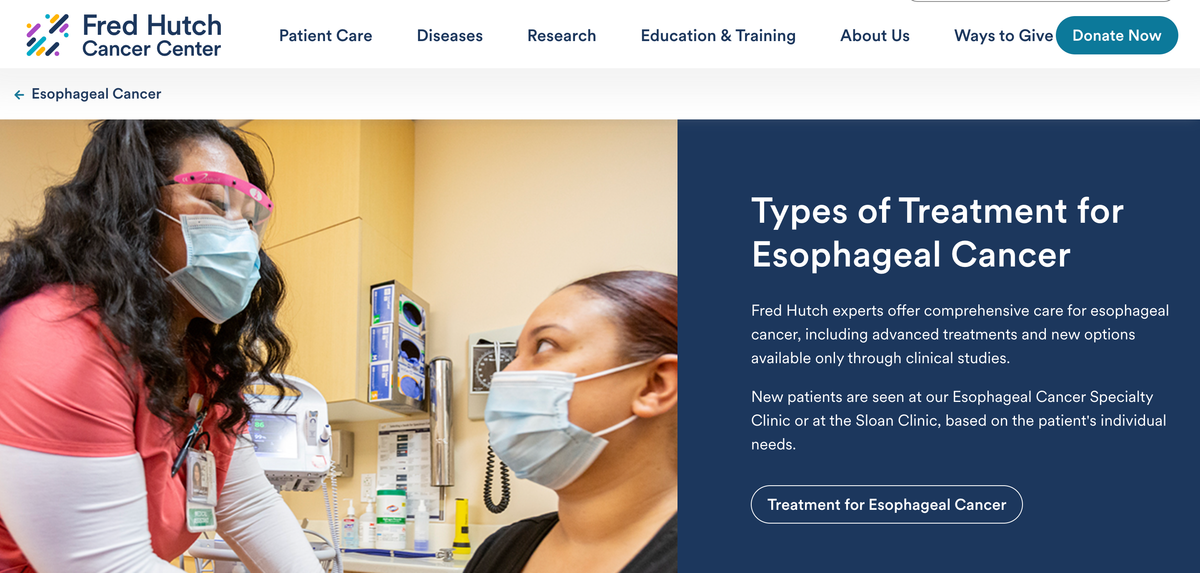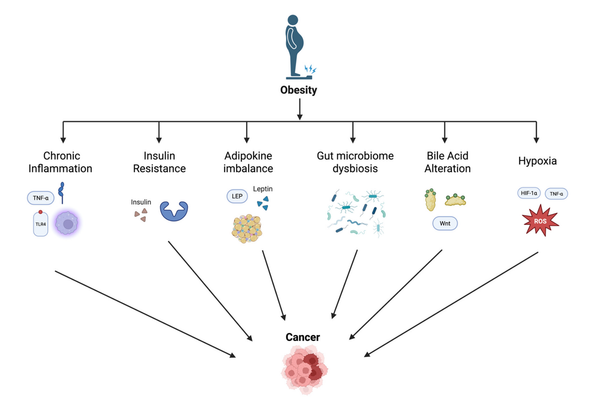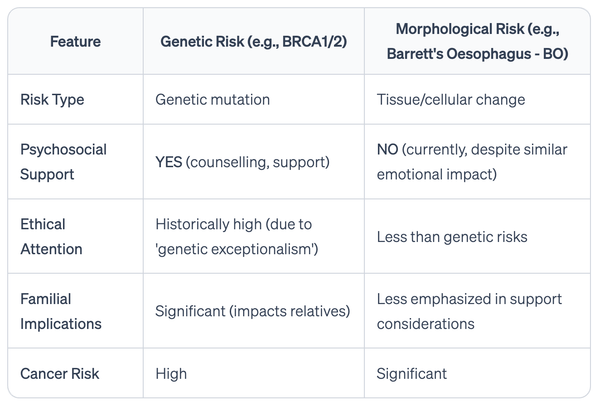Esophageal cancer - fast facts

The Fred Hutch Cancer Center (Seattle, WA) concisely presents helpful information on causes, symptoms and treatment options for both types of esophageal cancer, as well as additional resources for patients.

The Fred Hutch Cancer Center (Seattle, WA) concisely presents helpful information on causes, symptoms and treatment options for both types of esophageal cancer, as well as additional resources for patients.

This paper describes findings from a multicenter prospective study conducted across 13 hospitals in the UK. Participants were patients (n = 910) with a known diagnosis of non-dysplastic Barrett's esophagus who underwent a capsule-sponge (Cytosponge) test followed by endoscopy. The Cytosponge test combined with biomarker analysis, including p53 staining

This article provides a mechanistic framework relating obesity to increased risk of a number of gastrointestinal cancers, including esophageal adenocarcinoma. It also highlights the potential of weight loss interventions (e.g., lifestyle, pharmacologic, surgical) to reduce GI cancer risk. The authors describe a complex interplay of metabolic, inflammatory, microbial, and

This article addresses an interesting question: why are Barrett's esophagus patients not offered specialist counseling in much the same way as persons carrying genetic mutations (e.g., BRCA1/2) that confer increased cancer risk? Dr. Davies examines the contrasting approaches in UK NICE guidelines regarding psychosocial support for

Drinking very hot beverages has long been suspected of causing esophageal squamous cell carcinoma through thermal injury; the International Agency for Research on Cancer (IARC) has classified it as "probably carcinogenic to humans." Much of the supporting evidence comes from studies in South America, particularly southern Brazil and